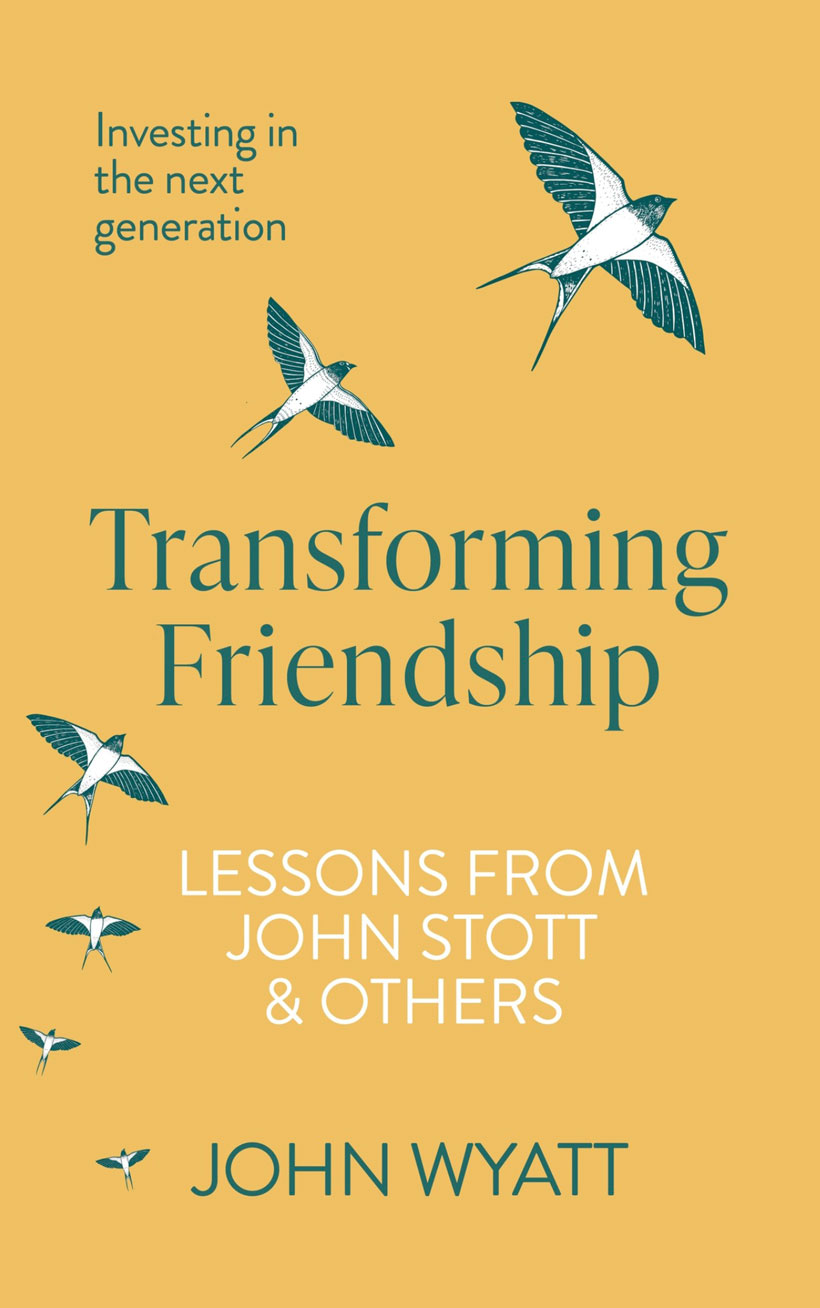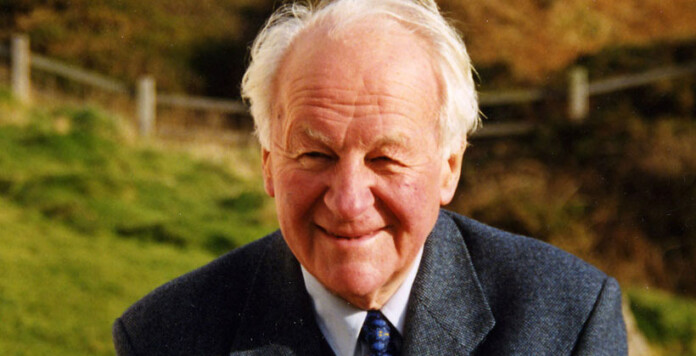Transforming Friendship
Investing in the Next Generation
Lessons from John Stott and Others
By John Wyatt
IVP, 176 pages, $13.99
 John Wyatt’s book is not only timely, but it can, and I would argue should, be read by people in all walks of life. Yes, Dr. Wyatt’s book is geared more toward those who serve in vocational ministry, but our generation has a desperate need for authentic, life-giving, meaningful friendship. Wyatt speaks with power and truth to a post-COVID world that needs to find its way to the strength and vitality that come from one word: friend.
John Wyatt’s book is not only timely, but it can, and I would argue should, be read by people in all walks of life. Yes, Dr. Wyatt’s book is geared more toward those who serve in vocational ministry, but our generation has a desperate need for authentic, life-giving, meaningful friendship. Wyatt speaks with power and truth to a post-COVID world that needs to find its way to the strength and vitality that come from one word: friend.
A physician, ethicist, and university professor by training, Wyatt was fortunate, like untold numbers of people around the globe, to receive the care, reach, and tutelage of the late Rev. Dr. John R.W. Stott, who died in 2011. It is this unique relationship between an older and wise pastor to a younger and growing disciple of Christ that serves as the background to Transforming Friendship.
What began with an invitation from Stott — “Would you like to have a cup of coffee with me?” — launched a nearly lifelong relationship that sustained not only Wyatt in good and harder times, but became a source of strength to Stott as well, particularly in his later years. Wyatt lays out a thoughtful case that “we need to put a far higher priority on friendship in our everyday Christian lives.”
After a two-year lockdown when people were isolated from surface relationships, the damage the COVID pandemic did to deeper friendships cannot be dismissed. Those moments that make possible the health that comes from friendship disappeared, and were replaced by other plagues — social media and virtual reality.
People no longer came together to pray, worship, and serve, but spoke through hand-held devices and flat-screen visual aids. Is it any wonder that during and after the pandemic there was also an explosive growth in cultural and political division? “Distancing,” while necessary to stop the spread, has remained, and has for many become valued as a virtue long after the worst of the pandemic has subsided.
Wyatt’s book is a strong, well-crafted and concise invitation to break free from the bonds of isolation and minimalistic relationships. Transforming friendship works toward loving others by seeing them “as God intended,” to quote Fyodor Dostoevsky.
But before unpacking the benefits of transforming friendship, by looking with a critical eye to the past and present, Wyatt offers a thoughtful case that reveals the landmines that have hampered the development of such relationships.
Wyatt reveals a cultural collapse that springs from the belief that the summum bonum is the elevation of the self above all else. This leads to all kinds of hindrances to true friendship, including exploitation, abuse, and manipulation. “It’s as though each of us becomes a lonely tyrant, an absolute king, in a small banana republic,” Wyatt writes. “Each state can decide to enter into contractual relations with other states, but only by consent and only when the sovereign regards the relationship being in their own best interests.”
It could all be a work of conjecture and speculation if Wyatt did not include that helpful backdrop of his relationship with Stott. John Stott’s model of transforming friendship, much like the model of Charles Simeon of Cambridge, makes frequent visits to this work. His influence proves not only the extraordinary value of such friendships, but also the way in which they are an essential element in living the Christian life. Wyatt’s beautiful description of Stott’s friendship is a valuable prompt for those whose lives need the transformation true friendship offers.
I was asked to review this book about the time I was retiring from 32 years of active ordained ministry, which naturally required a purge of letters, books, and such. I came across dozens of letters Stott had written me over the years, beginning when we first met in the early 1990s. One of the most meaningful moments in my life was spending an hour or so with “Uncle” John (an adjective he requested of all friends) not too long before his death — wherein his primary concern seemed to be how I was, how my family was doing, how my ministry was unfolding. He left me with an enduring charge: “be faithful … preach the gospel.” To the end, Stott paved the way for understanding true godly friendship.




